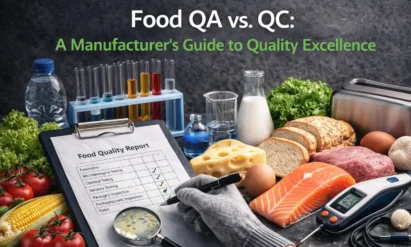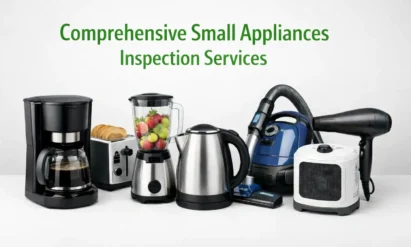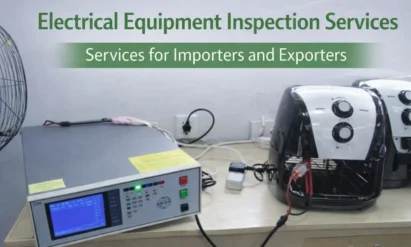What Is a Quality Management System (QMS)?
Jul 31,2025
A Quality Management System, or QMS for short, is basically a clear set of rules, routines, and tools that help a business keep its quality on track. It shows how a company runs things to make sure their products or services are consistently good.
A good QMS helps teams work better together, meet customer expectations, follow important regulations, and always look for ways to improve. It cuts down on mistakes, keeps everything organised, and builds customer trust by making sure what you deliver is high quality every time.
What Are the Different QMS Formats
Businesses use different styles of QMS, depending on what stage they’re at and how they operate. Some start off with old-school paper systems that print everything and filing it in cabinets.
That might work in the beginning, but it quickly becomes messy and hard to manage. Others use spreadsheets like Excel to track quality data, which is a bit better but still limited and risky when it comes to errors or version issues.
Today, many companies are switching to digital systems. Some install their QMS software right on their own computers (called on-premises systems). These offer more control but need a lot of upkeep from IT. Others go for cloud-based QMS platforms, which are hosted online.
These are easier to manage, can be accessed from anywhere, and update automatically. There are also hybrid setups, a mix of digital and paper, especially when companies are in the middle of transitioning to full digital.
More and more businesses are leaning toward cloud-based systems because they save time, reduce errors, and let you make updates in real time.
Why Is a Quality Management System Important
Having a QMS matters because it sets the standard for how things are done across the company. It makes sure that everyone follows the same best practices, no matter who they are or what they’re working on.
By laying out clear instructions and quality checks, a QMS helps reduce errors and keeps things consistent, which is a big deal for your customers.
It’s also super helpful for managing risk. If something goes wrong — like a defective product or a service issue — a QMS has built-in ways to catch the problem early, fix it, and make sure it doesn’t happen again.
It also helps companies stay on the right side of regulations and industry rules. A QMS is your playbook for delivering great work consistently, avoiding costly mistakes, and staying compliant.
What Are the Benefits of a QMS
Using a QMS can make a huge difference in how your business runs day to day.
Here are some of the main benefits:
Consistency and Happy Customers: A QMS helps make sure your products or services are always up to standard. That leads to fewer complaints and more repeat customers.
Staying Compliant: Regulations and industry standards can be tricky. A good QMS makes it easier to stay compliant and avoid fines or recalls.
More Efficiency, Less Waste: When your processes are clear and streamlined, your team wastes less time and materials. That means lower costs and higher productivity.
Smarter Decisions: A QMS tracks useful data — like performance metrics or customer feedback — so you can spot problems, spot trends, and make better decisions.
Motivated Employees: With clear roles and proper training, employees feel more confident and invested in doing quality work. That leads to a stronger, more accountable team.
Better Reputation: Companies with strong QMS systems often earn trust faster. Certifications like ISO 9001 can help you stand out and win new business.
Types of Quality Management Systems
Not every QMS is the same. Different businesses use different types depending on their goals and the industries they work in. Some follow formal standards, while others use broader strategies. Here are a few common types:
Standard-Based Systems
These are built around official standards. ISO 9001 is the most well-known. It lays out what a solid QMS should look like and works across industries.
There are also industry-specific ones like AS9100 for aerospace, IATF 16949 for automotive, and ISO 13485 for medical devices. These systems usually involve audits and certifications to show you’re meeting the standard.
Total Quality Management (TQM)
This is more of a company-wide mindset than a checklist. It’s about getting everyone involved, from leadership to the shop floor, in improving quality and keeping customers happy.
Lean Quality Systems
Lean is all about cutting waste and speeding things up. In QMS terms, that means simplifying steps, removing delays, and focusing only on what really adds value.
Six Sigma
Six Sigma is more technical. It uses data and analysis to find and fix problems in your processes. With tools like DMAIC (Define, Measure, Analyze, Improve, Control), it helps drive precise, long-term improvements.
Most companies actually mix and match these. For example, a factory might be ISO certified but also run Lean projects and use Six Sigma tools for certain processes. The important thing is choosing the system — or combo — that fits your business best.
Steps of Quality Management System Process
Setting up a QMS isn’t a one-time thing, it’s a process. One common way to think about it is through the PDCA cycle: Plan, Do, Check, Act.
Here’s how it usually works:
Plan: Figure out your quality goals and what you need to do to hit them. Outline the key processes, write your quality policy, and make a game plan.
Document: Write everything down, from step-by-step instructions to quality manuals. Keeping clear, up-to-date documents helps everyone stay on the same page and makes audits easier.
Train: Teach your team how to follow the system. Make sure they understand their roles and know what good quality looks like. Keep training fresh as things change.
Do and Monitor: Put your processes into action and keep an eye on how they’re doing. Measure performance, run inspections, and fix issues as they come up. This is about staying in control and improving on the fly.
Review: Management should check in regularly to see how things are going. Are goals being met? What’s working, and what needs to be tweaked? Use this to guide next steps.
Manage Suppliers: Your suppliers can impact your quality, too. Choose them wisely, set clear expectations, and keep track of how they’re performing.
Handle Risks: Think ahead. Where could things go wrong? Put safeguards in place to stop problems before they start. It’s smarter and cheaper to prevent issues than fix them later.
Keep Improving: Don’t stop. Learn from mistakes, customer feedback, and performance data. Encourage ideas from your team. Make small changes that add up to big gains over time.
A QMS isn’t just a checklist. It’s a cycle of doing things right, checking your work, and making improvements. When done right, it becomes a part of your company’s DNA.
Button Line
A Quality Management System is really just a structured way to help your business deliver consistently good results.
Whether you’re using a well-known standard like ISO 9001 or following approaches like Lean or Six Sigma, the goal is to make sure your customers are happy and your processes run smoothly and efficiently.
In today’s fast-moving world, having a solid QMS isn’t just about ticking boxes for regulations. It’s about creating a company culture that truly values quality and wants to keep improving every step of the way.
At QCC, we help businesses like yours take quality to the next level. From quality inspections and audits to supplier evaluations and product testing, our team works across Asia to make sure your supply chain meets the highest standards.
Whether you’re building out a QMS or want expert eyes on your production process, we’re here to support your goals.
--- END ---
Products
Get A Free Quote
Related Blogs
QCC SAMPLE REPORT
For sample reports or custom checklists, please contact us – we're here to assist you.



 December 31,2025
December 31,2025

